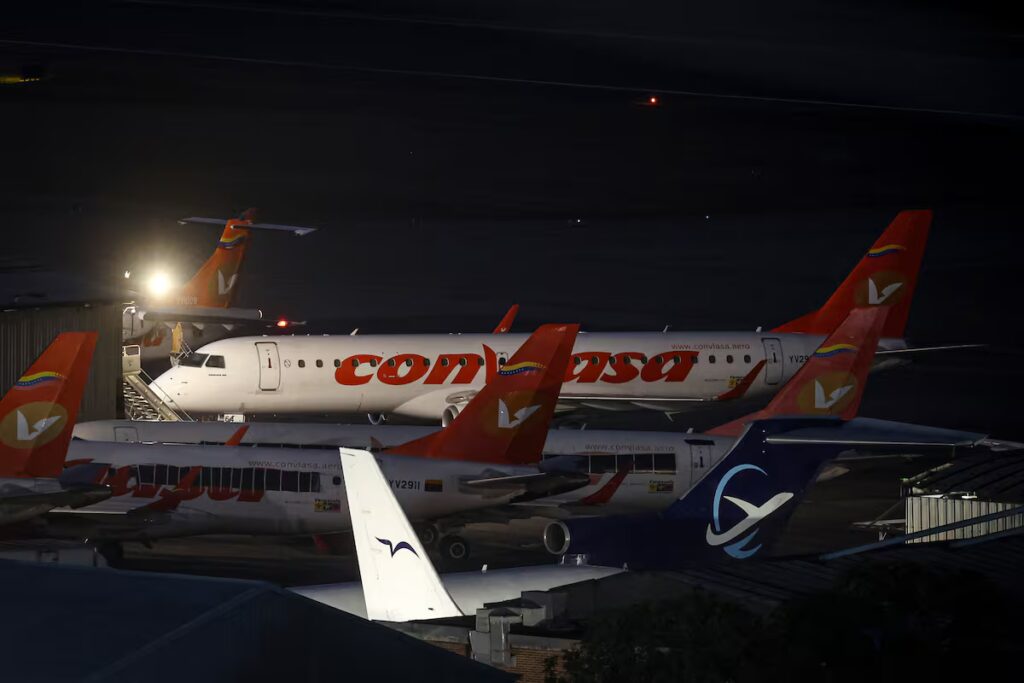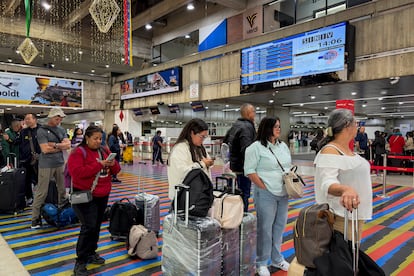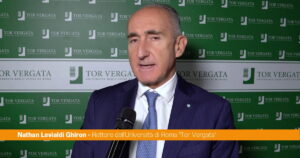
The Ministry of Foreign Affairs updated its travel recommendations on Tuesday and reiterates not to travel to Venezuela unless absolutely necessary, given the wave of flight cancellations and “uncertainty” over the reopening of the country’s airspace. In its note, Foreign Affairs asks travelers to “keep themselves duly informed” about the temporary suspensions announced by several airlines, including Iberia, Air Europa and Turkish Airlines, as well as possible last-minute changes.
The update renews a warning that has been in force for more than a year: “Since the situation of political and social tension that the country is experiencing has not changed since the presidential elections of 28 July 2024, the recommendation not to travel is reiterated, unless strictly necessary”.
The cancellations came after the US Federal Aviation Administration (FAA) issued a warning to “exercise caution” when flying over Venezuela and the southern Caribbean Sea on Friday, due to a “potentially hazardous situation” linked to increased military activity in the area. The notification comes in a context of unprecedented US deployment in the region – which Donald Trump’s administration justifies as an offensive against drug trafficking – and which has further increased pressure on Nicolás Maduro’s government.
Added to this warning was the Spanish State Aviation Safety Agency (AESA), which recommended that companies not operate in Venezuelan airspace until at least December 1, a recommendation that Iberia, Air Europa and Plus Ultra have adopted by suspending their Madrid-Caracas flights.
The result is that since Monday and Tuesday no flight has taken off from Madrid-Barajas to Venezuela, which leaves the air bridge between the two countries practically interrupted. Furthermore, the Venezuelan companies Estelar and Laser have suspended or rescheduled several frequencies on the Caracas-Madrid route for November 24, 26 and 28, effectively strengthening the blockade on the direct Spain-Venezuela connection. The cancellations are already having their effects at Barajas airport where almost a hundred people have stayed overnight due to lack of alternatives to flying and waiting for more information. In Venezuela, as confirmed by the Spanish Ministry of Foreign Affairs, there have not yet been any incidents involving passengers stranded in the country.
As regards the number of people affected, for now there is no official consolidated balance sheet for the Spain-Venezuela route. Sources cited by EFE and Euronews speak of “hundreds of travellers” stranded between the two countries awaiting rescheduling or alternatives via third-party airports.

The only closed data released by an aviation authority in the region is that of Colombia’s Aerocivil, which on Monday counted around 1,500 passengers affected by the cancellation of flights to Venezuela from that country after the same FAA alert, which gives an idea of the regional scope of the impact.
Member airlines of the International Air Transport Association (IATA), which includes around 300 global airlines, pledged in a statement to “re-establish operations to and from Venezuela as soon as conditions allow”. They also reiterated their “willingness to maintain open channels of communication with the Venezuelan authorities.” IATA stressed that the flight suspensions are “temporary measures, taken after a rigorous risk analysis to ensure the safety of passengers, crews and aircraft”.





